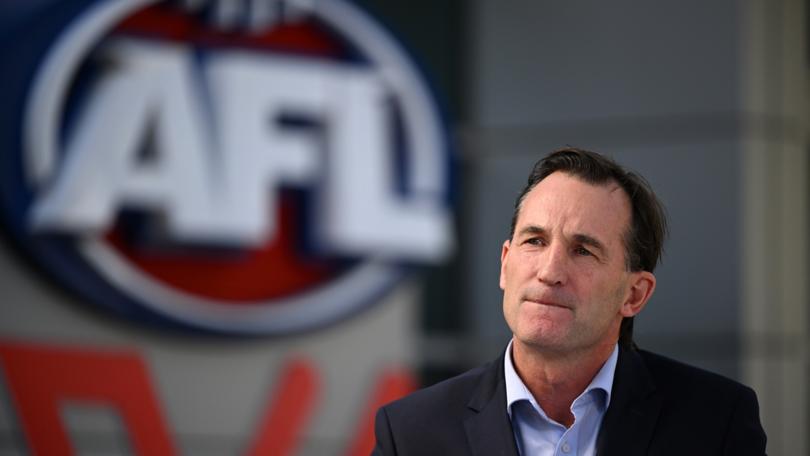EDITORIAL: AFL must be a leader in sport’s battle against drugs
Without an overhaul of the game’s drugs policy, the league’s integrity and player welfare are at significant risk.

Sporting Integrity Australia’s investigation into allegations of a secret off-the-books testing regime designed to help AFL players dodge the consequences of illicit drug taking has revealed what we’ve known for some time: without an overhaul of the game’s drugs policy, the league’s integrity and player welfare are at significant risk.
SIA’s chief executive David Sharpe said the AFL, and Australian sport more widely, was at a “crossroad in dealing with illicit drug use, player mental health and wellbeing and criminal infiltration of sport”.
He said there was evidence criminal enterprises were influencing Australian sport by “preying” on athletes or support staff through the supply of illicit drugs.
Sign up to The Nightly's newsletters.
Get the first look at the digital newspaper, curated daily stories and breaking headlines delivered to your inbox.
By continuing you agree to our Terms and Privacy Policy.“Significant intervention is required immediately to address the illicit drug culture in sport and the increasing and unacceptable risks posed to players, officials, clubs, and sporting codes,” Mr Sharpe said.
Allegations of the secret testing regime, in which players were said to have been encouraged to fake injuries in order to avoid match-day drug tests they were certain to fail, were first raised in Parliament by independent MP Andrew Wilkie in March.
At the time, the AFL did not deny the specifics of the allegations, with the league’s chief executive Andrew Dillon saying only he was “unapologetic” that the game’s illicit drugs policy had been devised with player safety in mind.
And while the SIA report said the secret tests did not contravene international anti-doping rules and that it could not find evidence that players were feigning injuries to dodge official tests, it called for both an overhaul and “independent oversight” of the policy.
“While the notion of screening tests by AFL club doctors may be uncomfortable, and at times present a dilemma to a club doctor regarding the reasons to disclose for a player withdrawing from a game, on the information we have this conduct does not in itself constitute (a doping offence),” the report said.
“The confidential nature of the medical model (between doctor and player) prevented the AFL from sharing information publicly, thus creating a degree of suspicion.”
The AFL has now said it will consider the SIA’s recommendations as it reviews its illicit drugs policy.
In releasing his report on Monday, Mr Sharpe issued a challenge to the AFL. Here was an opportunity for it to be a leader.
To come up with a best practice policy which protected both the young men and women it employed, and the integrity of Australia’s national game.
Sadly, the AFL’s history is littered with stories of young players who fall victim to the temptations of drugs.
Many manage to clean up their act and make it out of their addictions relatively unscathed.
Others don’t. Lives and careers have been destroyed.
Most recently, the death of former Docker and Demon Harley Balic in 2022, just days after his 25th birthday, provides a tragic example of where things can go so badly wrong. In April, Balic’s father revealed his death came after a long battle with addiction — known to the AFL but not to his family.
“The huge disappointment is that the AFL knew a lot and as a family we weren’t told. We may have saved him earlier,” Eddie Balic said.
It’s up to the AFL to ensure history stops repeating.
